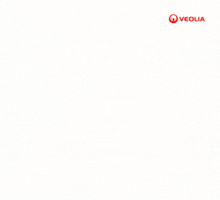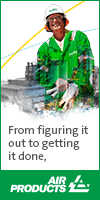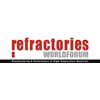ArcelorMittal Becomes a Member of the EITI Board
06/06/2013 - ArcelorMittal has been nominated to represent the mining industry on the Extractive Industries Transparency Initiatives (EITI) board.
The EITI is a coalition of governments, companies, civil society groups, investors and international organizations. It aims to establish a global standard ensuring transparency in the extractive industries, and better governance of natural resources. ArcelorMittal has supported the initiative since 2009.
Suresh Rajapakse, head of health, safety, environment, security and sustainability at ArcelorMittal Mining, was named an EITI board member for the 2013–2015/16 period. The news was announced at the sixth global EITI conference, held on 23–24 May in Sydney, Australia.
The 20-member board is formed of representatives from the EITI’s different constituencies including many of the 39 countries in which the implementation of the EITI standard is underway. A total of 23 countries are already EITI-compliant including Liberia, where ArcelorMittal operates an iron ore mine.
Stronger governance
Charlotte Wolff, head of corporate responsibility at ArcelorMittal, explained the significance of the EITI’s work:
“The EITI process is always led by the government in collaboration with civil society and the private sector. It leads to improved governance and socio-economic development, and improves the overall business climate to become more open, fair and competitive. Since its inception just over a decade ago US$1 trillion in payments has been accounted for, covering 167 fiscal years and 22 countries.”
She added that the EITI is a natural fit for ArcelorMittal, due to mutual commitment to strong governance principles and anti-corruption. “We supported Liberia to become the first EITI compliant country in Africa. And we are supporting Kazakhstan to become compliant, which is due later this year and going forward the USA and possibly other countries where we have mining operations will become candidate countries,’’ Wolff said.
Peter Kukielski, chief executive of ArcelorMittal Mining, spoke at the event, focusing on the vision for the further evolution of the EITI. Kukielski outlined the current challenges the mining industry is facing, including increased costs and taxation regimes that are creating pressures on future capital allocations: ‘’The transparency and accountability this initiative will create through the new standards is positive for all and should benefit our shareholders, the investment markets, communities, and governments. There is a huge amount of work still to be done to get to the level of transparency we aspire for and that will have a positive impact on the communities affected by our operations.’’
New standard released
One of the event’s headline activities was the release of the new EITI standard. This follows two years’ work to evolve the original standard, both by strengthening it and incentivizing implementing countries to link the EITI with other reform efforts and development agendas.
The key changes include providing the implementing countries with a clearer set of expectations for the seven EITI requirements, greater emphasis on implementing objectives, ensuring reports provide more contextual information to allow easier interpretation and strengthened reporting requirements.
The United Kingdom, Australia and France recently announced their commitment to implement these standards, while more than 80 of the world’s largest oil/gas and mining companies have committed to the implementation.
The United Kingdom, Australia and France recently announced their commitment to implement these standards, while more than 80 of the world’s largest oil/gas and mining companies have committed to the implementation.
More than 1,200 people attended the conference, with delegates travelling from almost 100 countries to attend.
The EITI holds a global conference once every two years. During these conferences, a smaller members' meeting with the three constituency groups - countries (implementing and supporting), companies (including institutional investors) and civil society organizations - takes place. The main task of the members' meeting is to appoint an EITI board for the next two years.



.jpg?lang=en-US&ext=.jpg)



